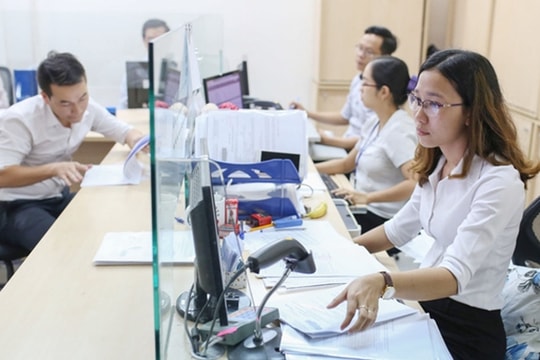Prime Minister: International integration is both an opportunity and a challenge
(Baonghean.vn) - On the morning of August 2, the Steering Committee for the project "Summary of 10 years of implementing Resolution No. 22-NQ/TW dated April 10, 2013 of the Politburo on international integration" held its first meeting.
The meeting took place online. Prime Minister Pham Minh Chinh chaired the meeting.
At Nghe An bridge, there were comrade Bui Dinh Long - Vice Chairman of the Provincial People's Committee, along with leaders of relevant departments, branches and sectors.
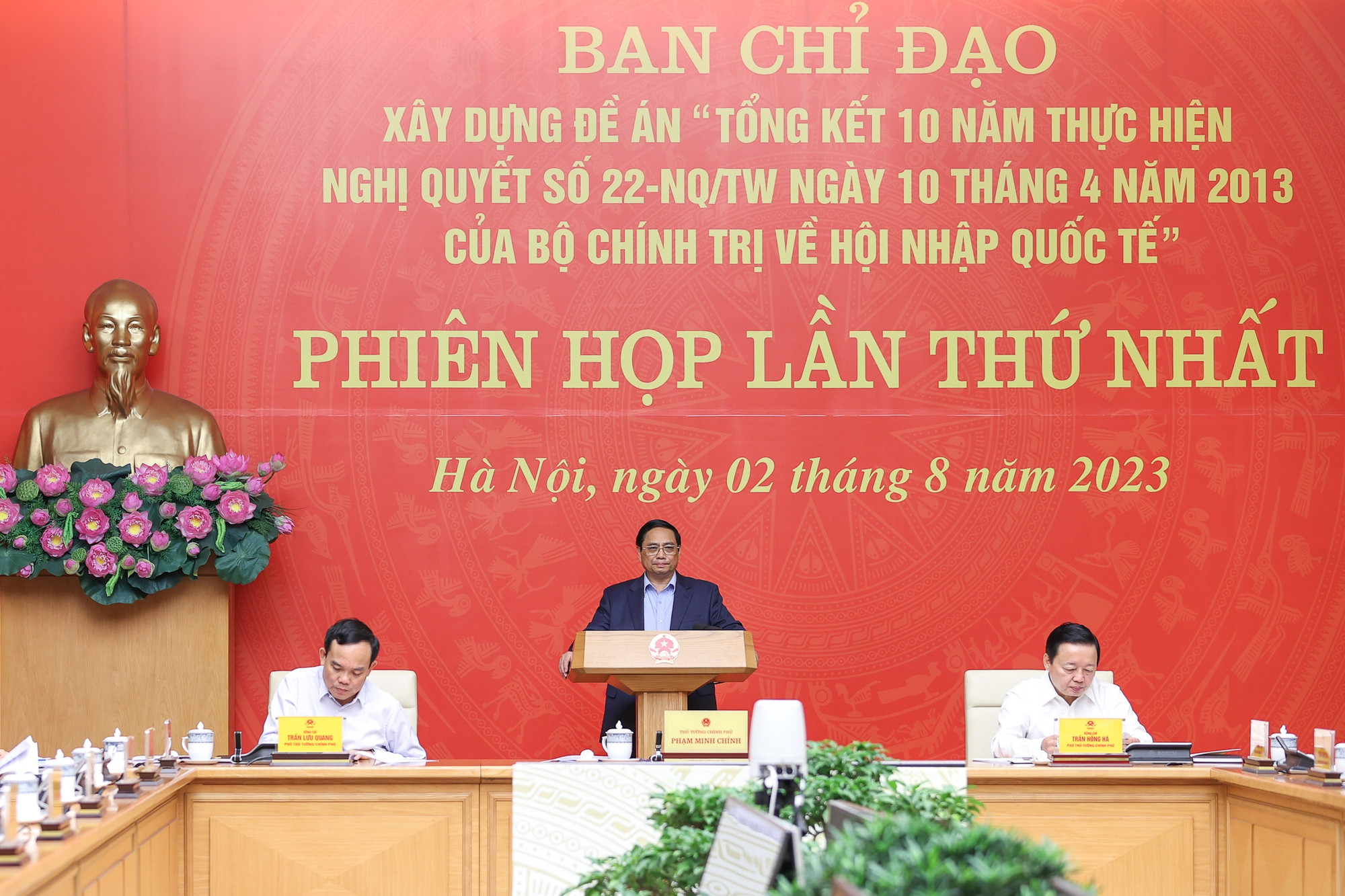
Vietnam affirms its position in the international arena
In his opening speech at the meeting, Prime Minister Pham Minh Chinh emphasized that the three pillars of the country in the period of economic reform from 1986 to present are: eliminating bureaucracy and subsidies, multi-sectoral and multi-ownership, and economic integration. Resolution No. 22 of the Politburo on international integration issued in 2013 is considered a very important document of the Party, marking an important integration milestone: shifting from a state of international integration to actively and proactively integrating deeply and comprehensively in all fields.
Resolution No. 22 specifies three types of international integration activities, including: compliance with the "rules of the game"; participation in building the "rules of the game"; participation in regional and international common activities. Vietnam's international integration practice over the past 10 years, especially the process of negotiating, signing, internalizing and implementing commitments to 15 free trade agreements (FTAs), is clear evidence that Vietnam always strictly complies with the "rules of the game" and actively participates in contributing to building the "rules of the game".
The Prime Minister assessed that the implementation in the past 10 years has shown that ministries, branches and localities have achieved positive results. Vietnam has actively participated in international relations and activities, contributing to the country's development and consolidating Vietnam's position in the international arena. This was affirmed by General Secretary Nguyen Phu Trong: "Never before has our country had such a foundation, prestige and international position as today."
In addition, Prime Minister Pham Minh Chinh frankly admitted that there are still limitations. Therefore, he asked the conference participants to discuss and analyze lessons learned, thereby setting goals, solutions and tasks for the coming time.
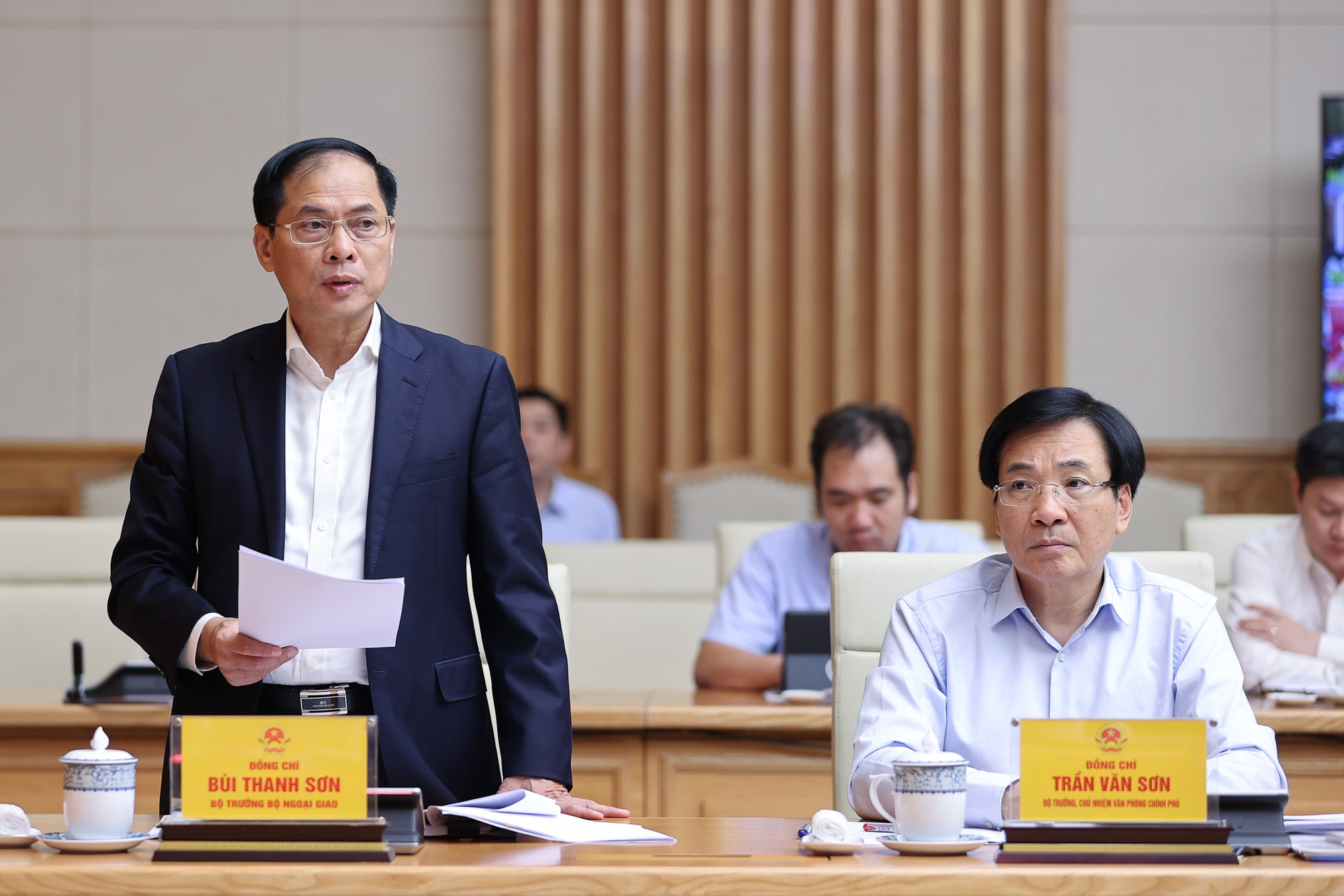
At the meeting, delegates heard reports on the implementation of Resolution No. 22 of the Politburo from 5 Ministries: Foreign Affairs, Public Security, National Defense, Industry and Trade, Labor, War Invalids and Social Affairs. Participating in the discussion at the meeting, localities pointed out a number of limitations as follows: The interest of people and businesses in international integration is still limited; the process of integrating international cooperation into local development plans is still confusing; FDI capital has not been effectively utilized.
The extent of Vietnamese enterprises’ expansion into the world is still limited. The level of connection between regions, areas, and areas in the country has also increased insignificantly; The connection between the foreign-invested economic sector and the domestic economic sector is still low, leading to the dispersion of Vietnamese enterprises and few opportunities to benefit from the spillover effects of foreign investment, technology transfer, knowledge transfer, etc.
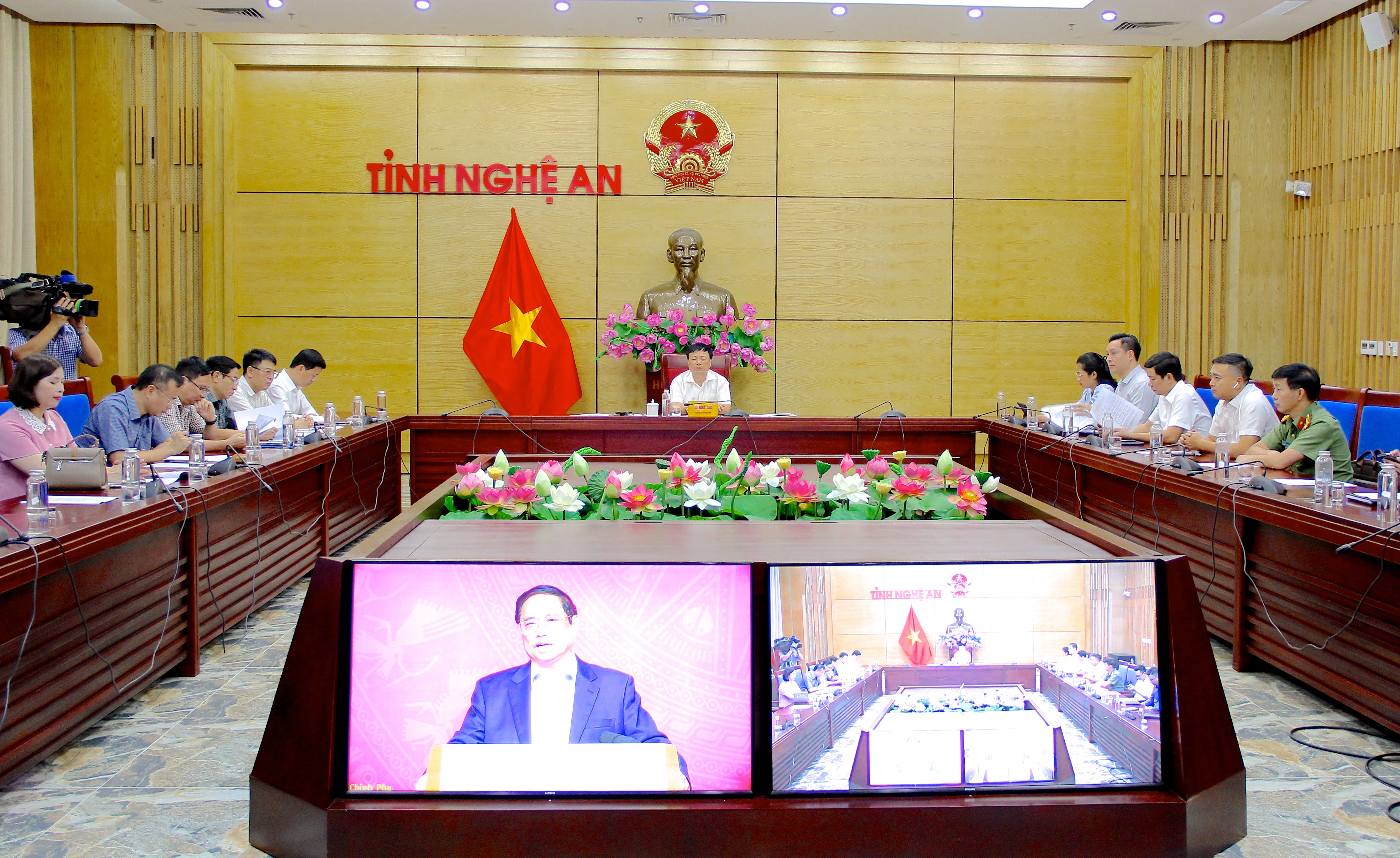
International integration is a strategic issue.
In giving suggestions for solutions in the coming time, the Central Economic Committee said that it is necessary to raise awareness and propaganda for people and businesses. The new document needs to clarify elements such as: the country has a new foundation, high strategic goals, the connection between protecting sovereignty and international integration.
Concluding the meeting, Prime Minister Pham Minh Chinh assessed that after 10 years of implementation, there has been a profound change in general from awareness to action. As a result, the country's political position and potential are improving, and international relations are expanding. Import-export turnover in 2022 reached 732 billion USD. Vietnam's international brand has been raised, up 12 places, among the fastest growing countries in the world.
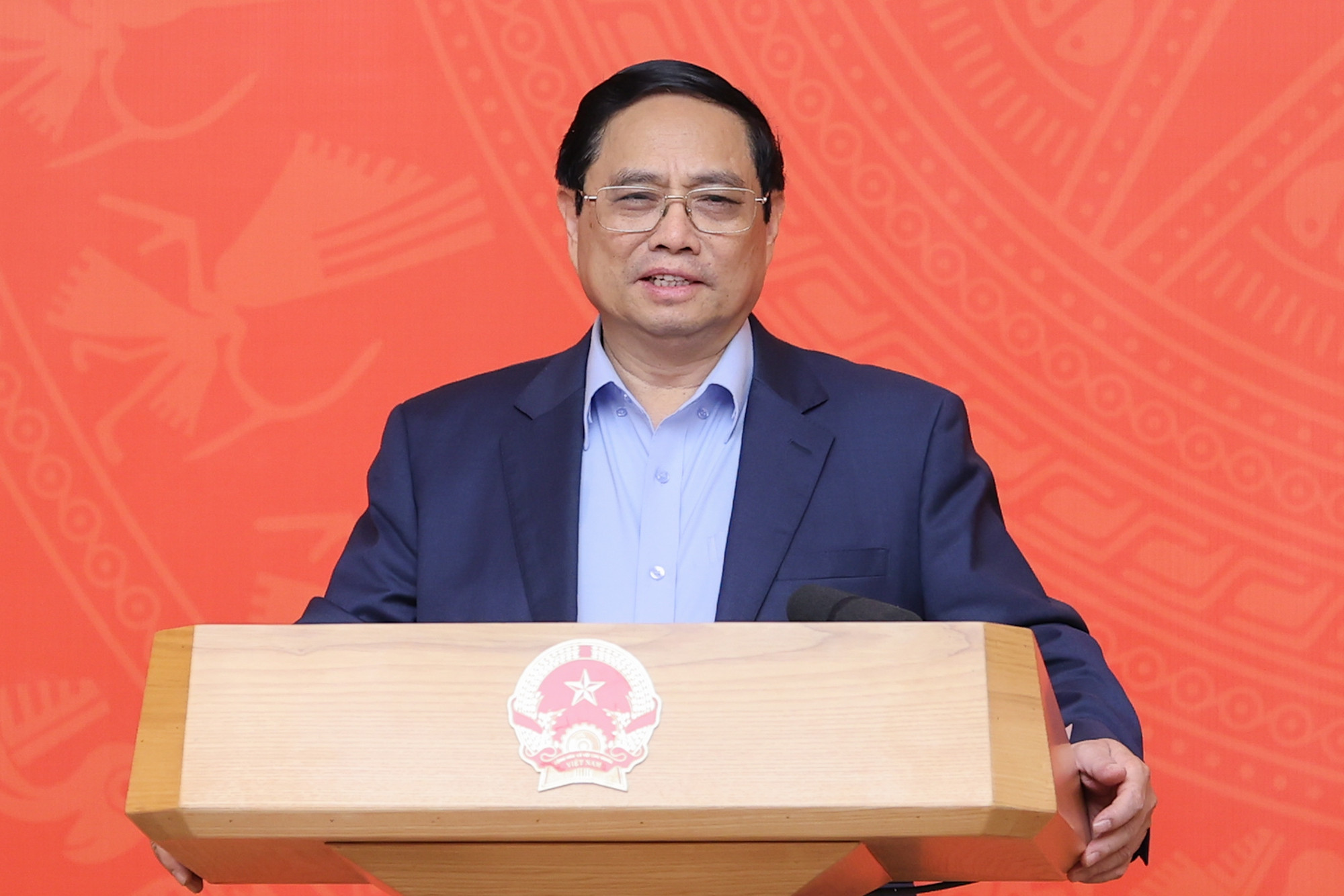
Besides the great strategic achievements, there are still many shortcomings and limitations such as: the proactiveness and creativity in implementing integration are not high; the role of the State in leading this "game" is still passive and confused; the implementation of international commitments is not effective and passive due to lack of experience; the rate of participation in the global supply value chain is still limited; many indicators such as national competitiveness, compared to ASEAN countries and the region, still have many limitations.
The reasons for these shortcomings can be explained as follows: Vietnam has carried out the renovation process in just 35 years; the international context has changed rapidly and unpredictably; the situation has not been closely and promptly grasped and forecasted; human resources to meet integration needs are still limited; the efforts of ministries, branches and localities have not been uniform...
On that basis, the Prime Minister drew 6 lessons: It is necessary to deeply perceive that international integration is a strategic issue, both an opportunity and a challenge. It is a difficult and sensitive task, but it cannot be avoided.
In addition, clarify and properly resolve the relationship between independence and international integration; maximize internal strength, take advantage of external strength in all fields; firmly grasp the international context and domestic needs, resolve contradictory and challenging issues; dare to think, dare to do, dare to break through; International integration in all fields must be closely linked, be a support for each other, have a focus and key points; Integration must be substantial, in the spirit of "harmonious benefits, shared risks".
Based on the above assessments, Prime Minister Pham Minh Chinh requested ministries and branches to continue to carefully study the documents, comprehensively evaluate the value of Resolution No. 22; carefully study international agreements, maintain the initiative. Accurately assess partners and subjects. Finally, provide an in-depth summary, aiming to shape tasks and solutions for flexible and creative application, suitable to the situation at home and abroad.

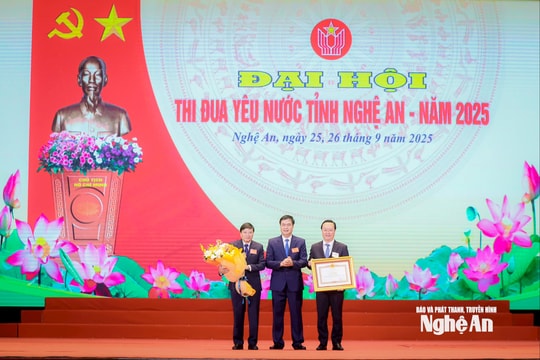
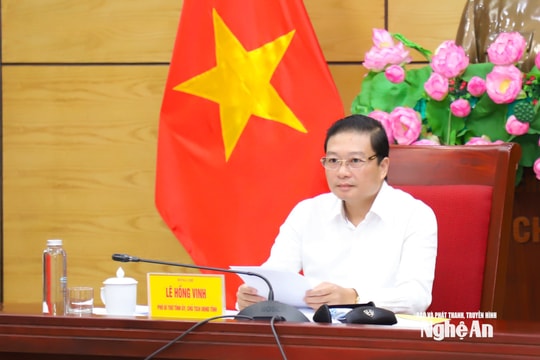

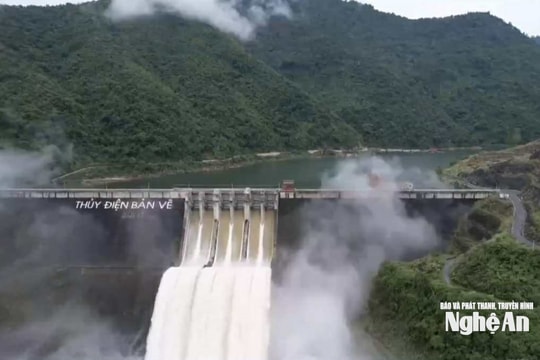
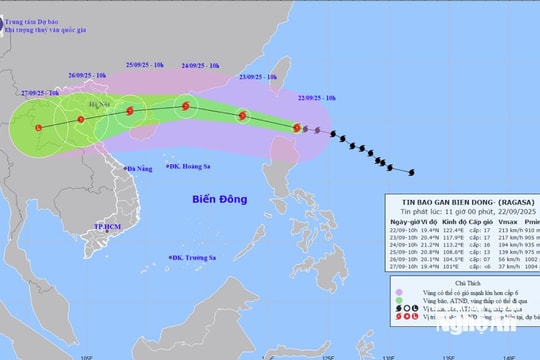
.jpg)
